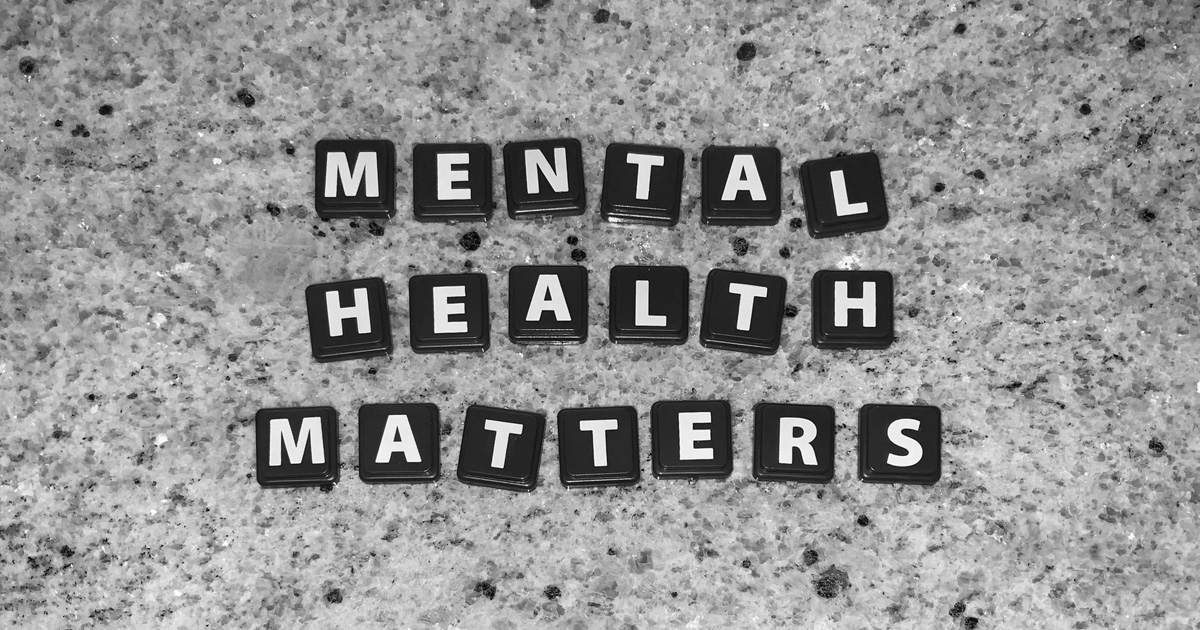
Choices That Matter: A Deep Dive into Preventing Cancer with Dr. Lauren Bachman
Chances are, you know someone who has faced the tough battle with cancer. This pervasive disease touches the lives of many.
But the good news is that everyday choices, from what we eat to how we handle stress, can significantly impact our chances of preventing this health challenge and catching it early.
In this two-part blog, we sit down with VSMG’s Clinical Advisor of Health & Wellness Services, Dr. Lauren Bachman, DNP, AGNP-BC, IFMCP, to talk about her extensive experience in the fields of oncology and hematology, followed by nine practical tips to help you live your healthiest, most vibrant life.
“The choices we make in our daily lives can be powerful tools in preventing and combating cancer. Let’s embark on this path together, empowered to make positive changes for a healthier future.” – Dr. Lauren Bachman

Q&A with Dr. Lauren Bachman
Q: Can you share a bit about your background and experience in the field of oncology?
Dr. Bachman: In the beginning of my career, I spent nine cumulative years working in both in-patient and out-patient hematology and oncology at Mayo Clinic, where I worked closely with patients in every stage of their health journey, from new diagnosis to end-of-life care. Through these experiences, I was given a unique look into the human condition and what it means to truly heal. The more I cared for patients facing complex illness, the more my eyes were opened to the dysfunction and fragmentation of our current medical model. This led me to pursue complimentary, alternative and holistic approaches to health and wellbeing.
Q: What initially inspired you to specialize in oncology?
Dr. Bachman: My mother was a nurse, and I always envisioned a career in healthcare. During my time at nursing school, an opportunity arose to work in the oncology unit. Connecting with patients on such an intimate level and listening to their stories fueled my commitment to oncology.
Q: What’s one thing that stuck with you from your time in the oncology field?
Dr. Bachman: The highs and lows on the oncology floor taught me profound life lessons. Witnessing patients mend relationships and find “silver linings” amidst their challenges highlighted the deeper aspects of life. Disease doesn’t have to be the only wake-up call we listen to; we can attune and listen to our bodies now to prioritize what truly matters.
Q: Out of the nine lifestyle recommendations that can prevent cancer, which we will get to later on in this blog, what is the one that people have the most control over?
Dr. Bachman: Diet is a potent influencer in cancer prevention, and it’s an area where we have a significant degree of choice and control over our health outcomes.. The shift in our food system, marked by increased accessibility to processed foods, correlates with the rise in cancer prevalence. In fact, there is growing evidence that consumption of ultra-processed foods is independently associated with both causative risk for chronic diseases, including cancer, heart disease, diabetes, and related mortality. Eating real food, rich in nutrients, is crucial.
Q: Which of the lifestyle recommendations do you think will surprise people the most?
Dr. Bachman: I think that many people are unaware that alcohol consumption is classified as a carcinogen and is a notable risk for cancer and cancer recurrence. This is especially confusing because of conflicting messaging suggesting alcohol may reduce their risk for cardiovascular or other chronic disease. T Researchers have worked to elucidate clarity on this conflicting data, and found that low amounts alcohol may have some cardioprotective benefits, but quality evidence is still lacking in answering the more important question: are the potential benefits from alcohol worth the risks associated with consumption. With the ongoing debate, there remains no question to the fact that alcohol is a toxin that adds burden to the body’s detoxification systems. If you are someone who is at high risk for cancer due to family history and or environmental exposure, limiting alcohol, or abstaining, is a proactive step for health as there are many other ways to reduce your risk for cardiovascular, and other chronic disease outside of alcohol.
Q: What message would you like to leave with our readers regarding the impact of lifestyle choices on cancer and the importance of early detection?
Dr. Bachman: I hope that with my responses, I am able to strike the delicate balance between acknowledging cancer’s intricate, multi-faceted nature and demystifying the pivotal factors that substantially influence its development. If I can equip our readers with knowledge and tools to cultivate a healthier internal environment that diminishes the conditions favorable to cancer, I hope that in turn they feel empowered and actively engaged in their journey towards optimal health. Rather than residing in the shadow of fear as potential victims with no control, I hope they embrace the idea of becoming proactive architects of their well-being.
Part II: 9 Lifestyle Recommendations to Prevent Cancer and Catch it Early by Dr. Bachman
1. Regular Exercise
Exercise significantly influences cancer risk and recurrence by promoting weight management, regulating hormones, boosting the immune system, reducing inflammation, and enhancing digestive health. Engage in moderate to vigorous physical activity for at least 150 minutes per week, incorporating both aerobic exercises like walking, running, or swimming, and strength training.
2. Nutrient-Dense Diet
Nutrition significantly influences cancer risk through its impact on inflammation, digestive health, weight management, blood sugar balance, hormone levels, and oxidative stress, which happens when our body produces harmful molecules called free radicals. These molecules can damage our cells and DNA, leading to cancer. Diets rich in antioxidants and phytochemicals from fruits, vegetables, and herbs can help neutralize free radicals and reduce oxidative stress.
In addition, adequate fiber intake supports digestive health and lowers the risk of colorectal cancer. Focusing on adequate hydration with filtered water, and a nutrition template made up from whole, unprocessed foods which supports adequate intake of essential vitamins and minerals while limiting ultra processed foods, including processed meat, industrialized oils, refined carbohydrates and sugar further contribute to an overall lower risk of developing cancer.
3. Maintain a Healthy Weight
Excess body weight, and associated metabolic imbalance like insulin resistance, and type diabetes are associated with a higher likelihood of developing various cancers. Strive to maintain a body mass index (BMI) within the recommended range for your height and build.
4. Avoid Tobacco and Alcohol
Tobacco use and alcohol consumption are leading causes of multiple cancers. Avoid tobacco and aim for low alcohol intake (up to one drink per day for women and up to two drinks per day for men) with consideration of periodic or long-term abstinence.
5. Cancer Screenings
Regular screenings, tailored to individual risk factors and age, provide a proactive approach to prevention and early cancer detection. Identifying cancer at its earliest, most treatable stages increases the chances of successful intervention and improved outcomes. For example, mammograms can identify breast tumors at an early, more treatable stage, while Pap smears can detect precancerous changes in the cervix. WellStyles members can access WellStyles’ Preventative Resource Guide to learn more about all recommended cancer screenings.
6. Stress Management
The relationship between stress and cancer is a complex and evolving field of study. While there is evidence suggesting that chronic stress may contribute to the development and progression of some cancers through mechanisms like immune system suppression and inflammation, the exact nature of this relationship remains an active area of research. Adopting stress-reducing practices such as mindfulness, meditation, or yoga can help mitigate stress and positively impact immune function and reduce inflammation.
7. Limit Environmental Exposures
Certain environmental factors, such as exposure to carcinogens in air, water, and occupational settings, can contribute to cancer development. Additionally, several everyday environmental exposures have been associated with cancer risk. Glyphosate, found in weed killers, has been classified as a probable human carcinogen. Pesticides used in agriculture and pest control may increase cancer risk with long-term exposure. Chemicals like BPA and its analogs in plastics, phthalates in personal care products, parabens in cosmetics, and various household chemicals have raised concerns about their potential links to cancer. Additionally, food additives and preservatives, such as artificial sweeteners and food colorings, are also being studied for their potential impact on cancer. Reducing exposure to these chemicals by using protective measures in workplaces with potential hazards, investing in water filtration, and by choosing safer alternatives for everyday products can contribute to a lower cancer risk. A wonderful resource to get educated on ingredients and make smarter choices from water filtration or fresh produce, to household and body care products is the Environmental Working Group, which has guides and a digital app to make healthy living more accessible.
8. Get More Zzzz’s
Sleep plays a crucial role in maintaining overall health, and emerging evidence suggests a significant connection between sleep quality and cancer risk. Sleep disturbances can disrupt the body’s circadian rhythm and negatively affect immune function, hormone regulation, and DNA repair mechanisms, all of which are essential for preventing cancer. Additionally, sleep disorders like sleep apnea have been associated with a higher risk of certain cancers. While further research is needed to fully understand this relationship, prioritizing healthy sleep habits and seeking treatment for sleep disorders may contribute to reducing cancer risk
Creating a conducive sleep environment, practicing relaxation techniques, and limiting screen time before bedtime are practical steps in promoting restful sleep. By making sleep a priority and aiming for 7-9 hours of quality sleep per night, you can actively contribute to lowering your cancer risk and enhancing your overall well-being.
9. Practice Safe Sun Exposure
Avoiding prolonged exposure to intense sunlight, especially during peak daytime hours, helps minimize the risk of harmful UV radiation that can lead to skin cancer. When outdoors, wearing protective clothing like hats and sunglasses, seeking shade, or using non-chemical, high SPF sunblocks are effective measures to prevent skin damage. Regular skin checks to monitor moles or changes in the skin’s appearance contribute to early detection of potential skin cancers.
In conclusion, making informed lifestyle choices can significantly impact our cancer risk. While people with a family history of cancer may be more susceptible to developing the disease, adopting a healthy lifestyle remains crucial for everyone, as it can positively influence overall well-being and mitigate various health risks.



